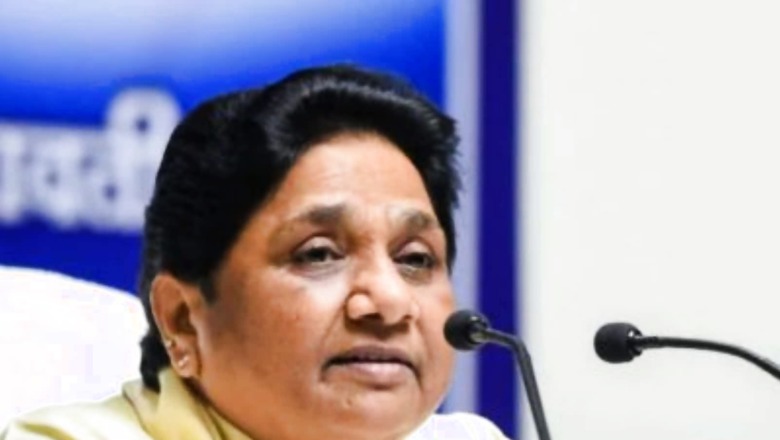
views
What do Jatavs as a socio-political community represent in UP politics? Jatavs are a numerically strong Dalit community in poll-bound Uttar Pradesh and constitute around 10-12 per cent of state’s population. Dalits, together, constitute an estimated 21.6 per cent of the state population. In other words, Jatavs are everywhere in UP, in almost every district and every constituency.
Before 1990, Jatavs were known to form the base vote of the Congress party. However, around early 1990s, they started shifting towards the Bahujan Samaj Party (BSP) led by Kanshiram and Mayawati. Now, over the years, they are known as the core vote or base vote of the BSP in Uttar Pradesh.
To get a sense of the sentiment on the ground, I travelled to Dalit patti (colony) in Mungari village in Allahabad district. “We are known as BSP supporters, hathi wale. Even when we say that we may vote for some other party, no one believes us,” a few old women in the colony told me.
At a Dalit basti near Mohanlalganj, Lucknow, locals told me they were known as BSP supporters. At another Dalit colony near Chitrakoot in Bundelkhand, a Jatav youth told me, “Everyone is supporting candidate(s) of their own jati-biradari (caste), why should we not?”
BSP’s strength lie in its base vote (Jatavs) and its political commitment to this core support group. And, this core vote base of the BSP is intact. This is despite no big rallies by Mayawati or a grand party campaign this election season, so far. Such rallies or campaigns do not affect political mobilisation of Jatavs; they may, to some extent, affect other Dalit castes like Pasis, Dhobis, Koris etc. The votes of these castes may get divided. Similarly, big rallies and aggressive campaign by Mayawati usually helps the BSP attract other non-Dalit castes and communities.
The BSP is locked in triangular contests in many regions and in several seats of Uttar Pradesh, something that has remained under-reported.
If one sees the caste profile of Dalit communities in Uttar Pradesh, Jatavs constitute nearly two-thirds of Dalit population in most districts, be it western UP, eastern UP or Bundelkhand. In many districts of Uttar Pradesh, Dalits comprise more than 30 per cent of total population.
They have also emerged as an educated community, and one can easily observe the growing aspirations for socio-political and economic mobility among them. A salaried class is emerging within this community, and they have evolved capacity to demand representation in politics. And political parties like the Congress, the Republican Party of India and the BSP have tried to respond to these aspirations.
The Bahujan movement in the 1980s and 1990s produced several leaders from this community who continue to remain active in politics and among various political forums across levels. The BSP is known as a factory that produces young Dalit leaders. Many young leaders from the Jatav caste are quite active in BSP politics. In fact, the BSP as a political organisation is driven largely by a cadre who have emerged from the Jatav caste. Many among them occupy various offices in local BSP units.
The BSP strategy is to attract various non Jatav, non-Dalit castes that along with the Jatavs can raise the chances of winnability. In the BSP rainbow social alliance, Jatavs are at the centre, creating electoral bhaichara with various non-Dalit castes of ‘Sarvjan’ community.
While Jatavs may appear as a homogeneous vote-bank for the BSP, growing political aspirations among its young members can also make them gravitate towards the BJP, the Congress and the Samajwadi Party. Both the BJP and the Congress have given them space in their party organisation and ticket distribution for various elections.
Power is the master key for opening the doors of emancipation was a slogan given by Babasaheb Ambedkar and reinvented by Kanshiram. This slogan, in particular, has inspired Dalit youth, and the educated and socially and economically mobile Jatav community to demand their share in political power. Come March 10 and we will see how their vote will reshape politics of democracy in Uttar Pradesh.
Badri Narayan is Professor and Director at GB Pant Social Science Institute, Prayagraj, and author of ‘Republic of Hindutva’. The views expressed in this article are those of the author and do not represent the stand of this publication.
Read all the Latest Opinions here




















Comments
0 comment